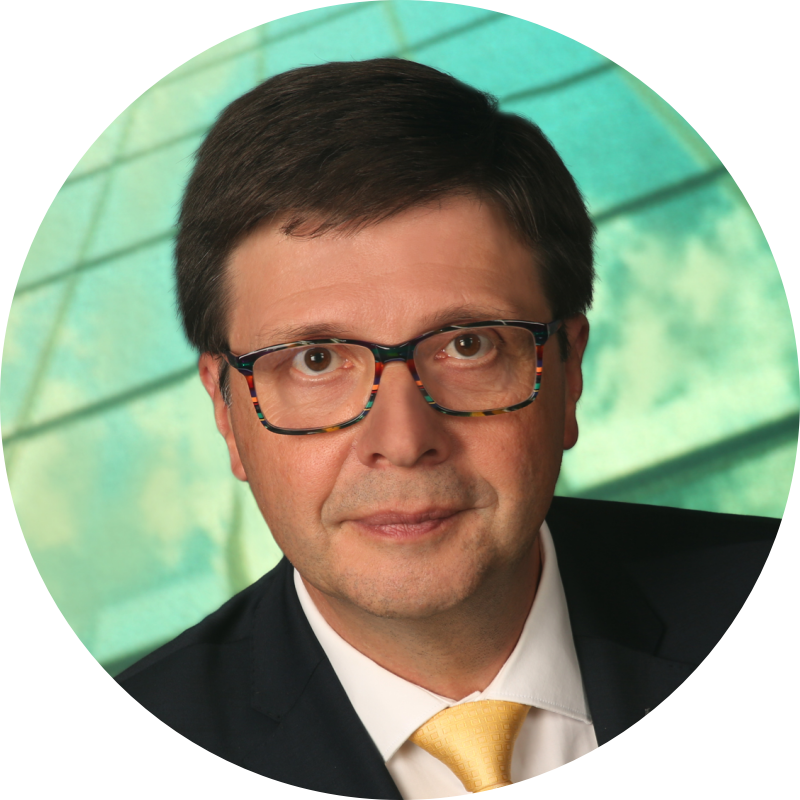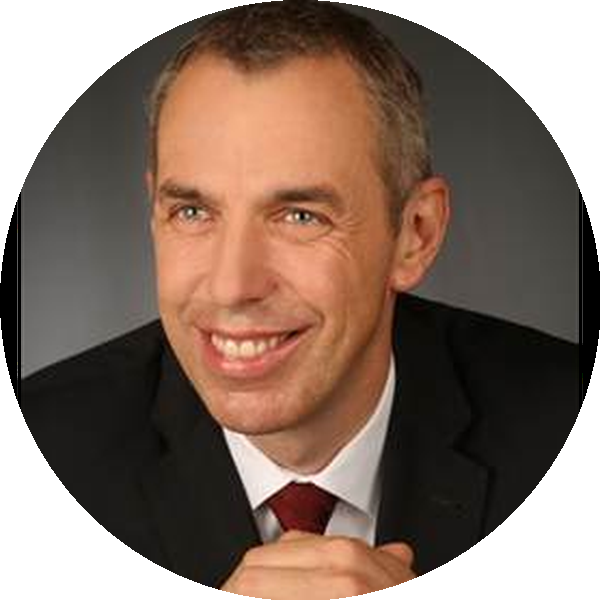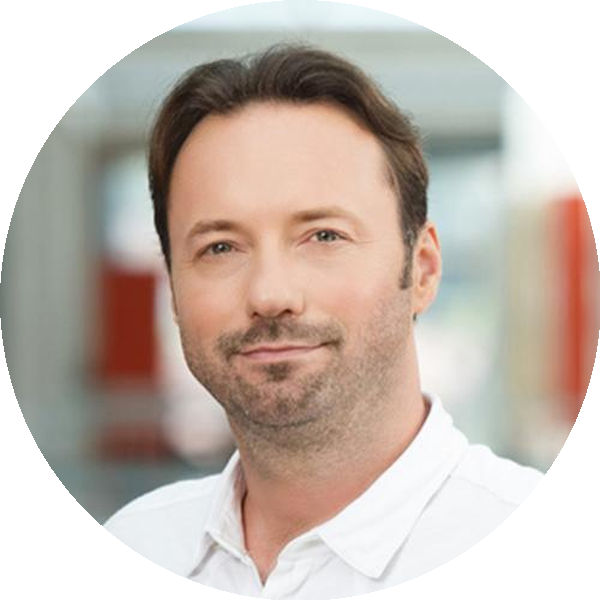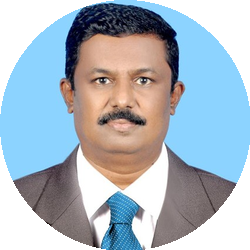KEYNOTE SPEAKERS

Franz Haas, Graz University of Technology, Austria
Franz Haas took over his family's mechanical engineering business after graduating at Graz University of Technology and specialized it to precision manufacturing. At the same time, he was a lecturer and professor at the FH Campus 02 and FH Joanneum Universities of Applied Sciences. Since 2013, he has headed the Institute of Production Engineering at Graz University of Technology, which currently employs around 30 researchers in four main areas of work. The build-up of the Smart Factory as a centre for digital transformation is worth highlighting. He has been Dean of the Faculty of Mechanical Engineering and Economic Sciences since 2020 and was from 2018 to 2020 president of the ÖWGP, the Austrian Scientific Association for Production Engineering.
Speech Title: TBA
Abstract: TBA

Martin Tschandl, FH JOANNEUM University of Applied Sciences, Austria
PhD (Social and Economic Sciences), Karl-Franzens-Universität Graz, Austria, 1993. Research semester at NYU, USA. Held several finance and IT responsibilities in industrial and service companies from 1991–1998. Subsequently professor of Business Administration and Controlling, and since 2001 head of the Industrial Engineering Institute “Industrial Management” at FH JOANNEUM – University of Applied Sciences, Austria. Visiting professor at four international universities. Head of the Austria II working group of the International Controller Association (ICV); member of the International Group of Controlling (IGC); member of the board of the Logistics Network Association (VNL) and of the Austrian Association of Industrial Engineers. Author of more than 140 scientific publications and editor of the book series Industrial Management. Teaching and research focus: planning and control, strategic corporate development, management of logistics, and digital finance (forecasting, RPA). Involved in more than 70 research and industry projects on these topics.
Speech Title: TBA
Abstract: TBA

Peter Peer, University of Ljubljana, Slovenia
Peter Peer is a Full Professor at the Faculty of Computer and Information Science, University of Ljubljana (UL), Slovenia, where he heads the Computer Vision Laboratory, is a member of the Faculty senate, a member of the Faculty management board, and coordinates the double degree study program with the Kyungpook National University (KNU), South Korea. He received his PhD in computer science from UL in 2003. Within his post-doctorate he was an invited researcher at CEIT, San Sebastian, Spain. His research interests focus on biometrics and computer vision. He participated in several national and EU funded R&D projects and published over 150 research papers in leading international peer reviewed journals and conferences. He is a co-organizer of a number of competitions at top-tier biometrics conferences. He serves as an executive editor at ICT Express, as an associated editor of IET Biometrics and IEEE Access, and as a topical advisory panel member of MDPI Applied Sciences. He is a member of the EAB, IAPR, and IEEE. Each year he reviews for top-tier conferences. In the past he also served as a chairman of the Slovenian IEEE Computer chapter for four years and guest edited a number of special issues in different SCI journals. He was a guest professor at the North-Caucasus Federal University and KNU and served at the Faculty as a vice-dean for economic affairs for four years. At present he also serves as the chairman of the Slovenian Pattern Recognition Society.
Speech Title: Morphing Attack Detection
Abstract: TBA
INVITED SPEAKERS

K Thippeswamy, Visvesvaraya Technological University, India
Dr. K. Thippeswamy is a Professor in the Department of Computer Science & Engineering at Visvesvaraya Technological University (VTU), India, with over 25 years of academic and professional experience; he holds a Ph.D. in Computer Science & Engineering from J.N.T. University Anantapura, specializing in Internet Technology, Distributed Data Mining, Cloud Computing, and IoT applications, and as a prolific researcher, he has published over 70 journal articles, 30+ conference papers, 3 books, and holds 2 patents, having supervised 7 completed Ph.D. projects and currently guiding 4 doctoral students, while his extensive conference organization experience includes serving as Conference Chair for ICCSIT 2010 and NCCSMA-2019, and he is an active member of technical bodies including ISTE, CSI, and IAENG, contributing significantly to computer science education and research in India.